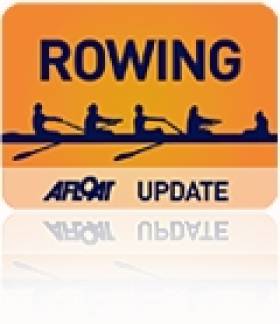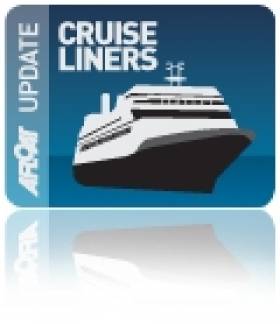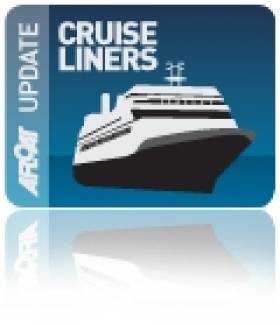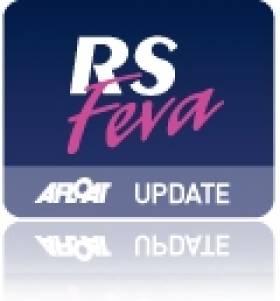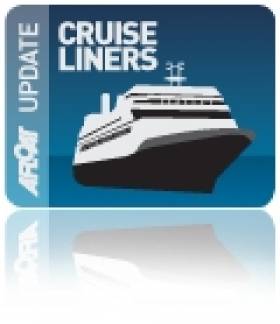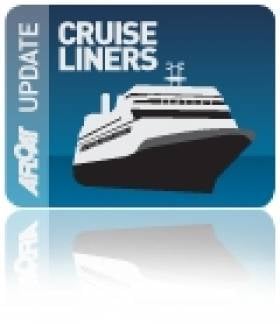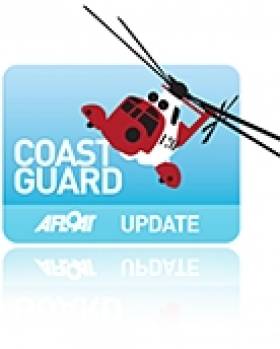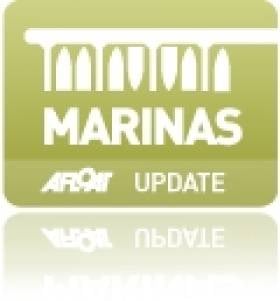Displaying items by tag: Italy
O'Donovan Joins Puspure in Rowing Finals in Italy
#ROWING: Paul O’Donovan qualified for the final of the lightweight single sculls at the Memorial Paolo d’Aloja regatta in Italy. The Skibbereen 19-year-old, who was a late addition to the team, was a close-up second in his heat at Piediluco, in one of the best times of the day.
Costa Concordia Officers Sentenced In Plea Bargain
#CostaConcordia - The Irish Times reports that five officers from the ill-fated Costa Concordia have received jail sentences as part of their plea bargains with the court.
Each received a sentence ranging from 18 months to two years and 10 months - but as all sentences under two years in Italy are suspended, none are likely to be imprisoned.
As previously reported on Afloat.ie, the cruise liner's captain Francesco Schettino is awaiting a decision on his legal team's second plea offer to avoid a lengthy and complicated trial over the shipwreck tragedy, in which 32 people lost their lives.
Schettino, like the others, is charged with multiple counts of manslaughter, and is also accused of causing the loss of his ship - which ran aground in shallow waters off the western Italian coast on 13 January 2012.
Costa Concordia Captain Offers Plea Deal
#CruiseLiners - Lawyers for the captain of the cruise liner that capsized off the west coast of Italy early last year have requested a plea deal in the trial over his role in the disaster.
According to RTÉ News, Francesco Schettino faces charges of manslaughter and causing the loss of his ship after the Costa Concordia ran around in shallow waters off Isola del Giglio on the night of 13 January 2012.
Some 32 people died in the ensuing disaster, and more than 4,000 passengers and crew - including an Irish couple - were hurriedly evacuated from the vessel.
A lawyer for Schettino, whose trial began on 9 July, told the press that he would offer to plead guilty in exchange for a sentence of three years and five months - following the rejection of a previous offer of three years and four months.
His legal team argue that he was not solely to blame for the disaster, and point to plea deals made by five others officials with liner operator Costa Cruises, which also agreed to pay a €1 million fine to settle criminal charges.
However, the prosecution has blasted Schettino's plea bargain proposal as "absolutely inadequate".
The crew of the Costa Concordia was last year presented with the prestigious Lloyd's Lost Seafarer of the Year award for their "courage and professionalism" in response to the disaster.
Places Filling Fast for 2013 RS Feva Worlds
#RSFeva - Entries for the 2013 RS Feva Worlds in Tuscany broke the 100 mark on Friday 1 February, as Yachts and Yachting reports.
More than five months remain till the start of the event at Marina di Grosetto, which runs from 19-26 July - but with just 180 places in total, the rush is surely on for Feva sailors to stake their claim.
So far 14 countries across three continents will be represented, with newcomers including the Czech Republic, Lithuania and Switzerland, while Los Angeles will also send a boat for the first time.
Full details of the event including entry forms and the Notice of Race are available vis the RS Feva Worlds website. The entry deadline is 30 June 2013 but with more than half the available spots booked already, there's no time to waste.
Here's hoping Ireland will be as well represented as we were in 2010, when 34 Irish Feva sailors took part in the Worlds at Carnac in France.
Survivors Mark Anniversary of Costa Concordia Tragedy
#CostaConcordia - RTÉ News reports that survivors of the Costa Concordia are joining relatives of the 32 people who died in the tragedy to mark the first anniversary of the shipwreck.
The day-long commemoration began this morning with the return to the sea of the rocks that ripped open the hull of the cruise liner when it ran aground in the shallows off the west coast of Italy.
It will be followed by a Mass and a minute's silence at 9.45pm tonight at the moment when the vessel hit the rocks.
As previously reported on Afloat.ie, an Irish couple were among the thousands rescued from the ship when it capsized off Tuscany on the evening of 13 January 2012.
The ship's crew have been praised for their efforts during the dangerous night-time evacuation of the sinking ship, and received the Lloyd's List Seafarer of the Year award for their "courage and professionalism".
Meanwhile, the ship's captain Francesco Schettino is under house arrest awaiting trial on charges of manslaughter, causing the incident and abandoning ship.
And BBC News reports that the wreck of the Costa Concordia is expected to be removed from the Tuscan coast by September this year.
A documentary on the final moments of passengers on board the stricken cruise liner is available to watch online via Channel 4's 4oD service (UK and Ireland only).
Cruise Lines Mandate Pre-Departure Safety Briefing for Passengers
#CRUISE LINERS - Cruise ship passengers will be given a safety briefing before leaving port under new industry rules drawn up in the wake of the Costa Concordia incident, The Guardian reports.
Three organisations representing international cruise lines have agreed that the 'muster drill' - which is currently conducted within 24 hours of setting sail as per maritime law - must now be held before departure from any port.
The move comes after reports that hundreds of passengers who had boarded the stricken vessel hours before it ran aground off the western Italian coast had not yet had any kind of safety instruction.
Muster drills, whereby passengers are shown how to put on lifejackets and directed to exits, are already common practice in the industry.
As previously reported on Afloat.ie, an Irish couple were among thousands rescued from the Costa Concordia after the incident on Friday 13 January. At least 32 people are believed to have died in the disaster, with 15 recorded passengers still missing.
The Guardian has more on the story HERE.
Italian Coastguard to Deliver Keynote at Dublin Conference
#COASTGUARD - Representaives of Italy's coastguard will give an account of its handling of the Costa Concordia tragedy at an international conference in Dublin next month, The Irish Times reports.
The Italian coastguard has been invited to deliver the keynote address at Search and Rescue 2012, which is being hosted in Ireland for the first time.
It is expected that this address will include a detailed account of the sinking of the cruise liner Costa Concordia last month.
At least 17 people have died and 12 are still missing after the ship ran aground on the western Italian coast. One Irish couple were among the thousands rescued from the stricken vessel.
Meanwhile, attendees at the conference - which is being hosted in the year of Ireland's charing of the EU coastguard network - will also witness demonstrations of the Irish Coast Guard's rescue helicopter fleet at Weston Airport in Leixlip.
As previously reported on Afloat.ie, Irish Coast Guard director Chris Reynolds has been charged with preparing the grounds for a permanent secretariat to be run by EU coastguard officers.
Irish Couple Speak of 'Titanic' Experience on Capsized Cruise Liner
#NEWS UPDATE - The Irish couple rescued from the stricken cruise liner off the Italian coast have spoken of their joy to be back home safe and sound.
Séamus Moore (52) and his wife Carol (50) from Clonmel were greeted by their three children at Dublin Airport yesterday, just two days after the Costa Concordia struck a sandbank and capsized off Tuscany.
“It was a difficult experience but at the end of the day it worked out very well for most people," Carol told The Irish Times. "It’s really, really a relief to be home.”
Commenting on the events of Friday night, Séamus likened their experiences on the sinking cruise ship to the film Titanic.
“When we were sitting on the side of the ship I said to her ‘now we know what Leonardo DiCaprio and Kate Winslett felt like’ and she said ‘well at least Kate lived’."
As the boat listed, it also struck Séamus that while "everything was crashing one way, then the next, the one thing I did notice is that the piano player kept playing."
The couple were removed from the ship by lifeboat in the early hours of Saturday and looked after by the staff at the Irish Embassy in Rome before their return.
They were among some 4,000 passengers on the cruise ship, most of whom were rescued within hours of the incident. Six people are confirmed dead following the disaster, with more than 60 injured and 16 people still missing.
The captain of the 114,500-tonne vessel was arrested on Saturday accused of manslaughter and of abandoning ship before all passengers and crew had been evaculated.
The Irish Times has more on the story HERE.
Irish Couple Among the Rescued from Capsized Cruise Ship in Italy
#NEWS UPDATE - An Irish couple were among those rescued from the cruise ship that ran aground off the coast of Italy on Friday night, the Irish Examiner reports.
Three people are believed to have died, while 14 others were injured, after the Costa Concordia struck a sandbank and capsized off the Tuscan coastline in the Tyrrhenian Sea.
The vessel was carrying more than 4,000 passengers at the time, many of whom jumped into the water as panic set in after the ship hit a rock that tore a 150ft gash in the hull.
As of Saturday three bodies had been recovered from the sea, with at least three more feared drowned.
The Department of Foreign Affairs confirmed that an Irish couple on board are safe and well, and are receiving consular assistance. Many survivors are taking refuge on the small island of Giglio close to the incident.
The Irish Examiner has more on the story HERE.
Italian Marinas Facing a Tough 2011
In a bad omen for marinas in Ireland and elsewhere in Europe, Italian marina operators are facing a further decline in fortunes, according to boat industry website IBI Plus.
The site highlights a report in Italian newspaper Il Sole 24 Ore which says visitor numbers are falling as boatowners have fled to France, Corsica and Croatia - a result of growing unease with increased checks by the Italian financial police.
More and more berthed boats are up for sale, especially in the 10-20m range, while fuel sales are also dwindling, the report adds.
President of Italian marina association Assomarinas Roberto Perocchio told Il Sole 24 Ore that in some cases up to 20% of berthed boats are on the market, while 10% of clients have left the market.
Marina operators reported a decrease in visits on 2010, with some accusing Italy's Guardia di Finanza of being too heavy-handed.
IBI Plus has more on the story HERE.


























